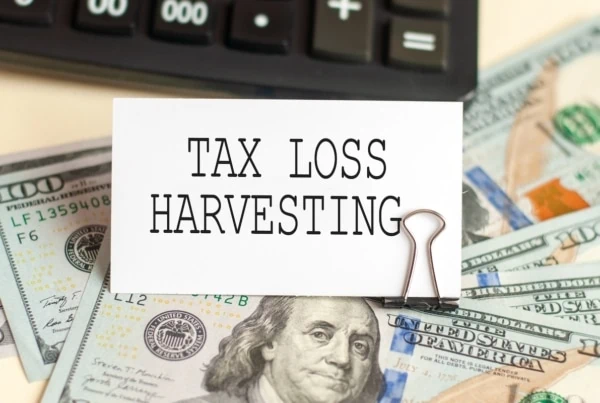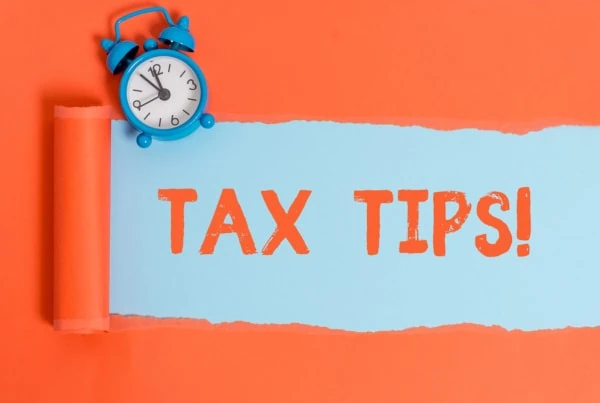Most people know that federal income tax returns are due in April. But there are a lot of other important tax deadlines during the year you might have questions about.
For instance: When are taxes due if you’re self-employed or live overseas? When’s the last day to contribute to a 401(k) account, IRA, or health savings account? When do you have to report taxable tips to your employer? What if your tax records are destroyed during a hurricane or other natural disaster?
Not knowing the answer to these or other questions about federal tax due dates can impact your bottom line. If you’re required to file a tax return or owe taxes to Uncle Sam, missing the deadline can cost you dearly—in the form of steep penalties and interest payments.
The month-by-month federal tax calendar below covers the most important deadlines for individual taxpayers. It includes due dates for estimated tax payments, filing extension requests, withdrawing funds from retirement accounts, and more. Hopefully, it will help you meet all your tax filing deadlines and pay taxes on time, so you don’t have to pay additional penalties and interest to the IRS.
Related: How Much Is Your Standard Deduction?
Table of Contents
January 2025 Tax Deadlines
| Date | Tax Deadline | Form |
|---|---|---|
| Jan. 10 | Report Tips in December 2024 to Employer | Form 4070 |
| Jan. 15 | Pay Estimated Tax for Income Earned from September to December 2024 | Form 1040-ES |
| Farmers and Fishermen Pay Estimated Tax for 2024 | Form 1040-ES | |
| Jan. 31 | File 2024 Tax Return if Last Installment of Estimated Tax for 2024 Not Paid by Jan. 15 | Form 1040 |
Workers who receive tips must include tips received during the 2023 tax year as taxable income on their federal tax return. However, they must also report tips of $20 or more to their employer each month. For tips received in December 2024, the due date for reporting tips to your employer is Jan. 10.
For most taxpayers who must pay estimated taxes, the fourth payment (and final payment) for the 2024 tax year is due on Jan. 15. However, you don’t have to make the fourth payment if you file your 2024 federal return and pay the entire balance of income taxes due by Jan. 31.
There’s also a special estimated tax rule and deadline for farmers and fishermen in January. If at least two-thirds of your gross income is from farming or fishing, you only have to make one estimated tax payment for the year. For 2024 estimated taxes, the filing deadline for that one payment is Jan. 15.
Related: 11 Education Tax Credits and Deductions for 2024
February 2025 Tax Deadlines
| Date | Tax Deadline | Form |
|---|---|---|
| Feb. 10 | Report Tips in January 2025 to Employer | Form 4070 |
| Feb. 18 | Claim Withholding Exemption for 2025 | Form W-4 |
| Various Returns and Payments for Victims of Certain Natural Disasters | N/A | |
| Feb 28. | All Businesses Must File Information Returns for Certain Payments Made in 2024 (1099-NEC forms must be filed by Jan. 31) | Forms 1099 |
The due date for an employee reporting tips received in January is Feb. 10.
If you claimed an income tax withholding exemption for the 2024 tax year, you must give your employer a new W-4 form by Feb. 15 if you want your exemption from tax withholding to continue in 2025.
Related: 30 Tax Statistics and Facts That Might Surprise You
March 2025 Tax Deadlines
| Date | Tax Deadline | Form |
|---|---|---|
| March 3 | Farmers and Fishermen File 2024 Tax Return if Estimated Tax for 2024 Not Paid by Jan. 15 | Form 1040 |
| March 10 | Report Tips in February 2024 to Employer | Form 4070 |
| March 17 | Partnerships and S Corps Must File Calendar-Year Returns and Provide Owners With Schedule K-1s | Forms 1065 and 1120-S, Schedule K-1 |
For farmers and fishermen who didn’t make the required estimated tax payment for the 2024 tax year by Jan. 15, the deadline for filing a 2024 income tax return and paying taxes is March 1.
This month’s tip reporting due date—for tips received in February—is on March 10.
Related: 401(k) Contribution Limits for 2024 + 2025
April 2025 Tax Deadlines
| Date | Tax Deadline | Form |
|---|---|---|
| April 1 | Take First RMD for People Who Turned 74 in 2024 | N/A |
| April 10 | Report Tips in March 2025 to Employer | Form 4070 |
| April 15 | File 2024 Tax Return and Pay Any Tax Due | Form 1040 |
| Request Six-Month Extension to File 2024 Tax Return | Form 4868 | |
| Pay Estimated Tax for Income Earned from January to March 2025 | Form 1040-ES | |
| Report and Pay Household Employment Taxes | Schedule H (Form 1040) | |
| Contribute to IRA, Solo 401(k), SEP Plan, or HSA for 2024 | N/A | |
| Withdraw Excess IRA Contributions for 2024 if Filing of 2024 Tax Return Not Extended | N/A |
April is the busiest month on the federal tax calendar. If you turned 73 years old in 2024, the month starts with the April 1 due date for taking your first required minimum distribution from your retirement accounts.
In addition, the monthly tip reporting deadline is on April 10 (for tips received in March).
Related: Federal Tax Brackets and Rates for 2024 + 2025
And, of course, there’s April 15—the end of income tax filing season! For most taxpayers, it’s the last day to file your tax return and pay taxes you owe. However, if you can’t complete your return before the filing deadline, you can request an automatic six-month tax extension. The request must be made by April 15, though. And be warned: A tax extension only delays the deadline for filing your tax return—it doesn’t extend the due date for paying taxes you owe. So, if you do request an extension, estimate your tax liability for the year and send that amount to the IRS.
April 15 is also the due date for filing Schedule H and paying related employment taxes if you paid cash wages of $2,700 or more in 2024 to a household employee (e.g., a maid, nanny, cook, gardener, private nurse, etc.). You must also file Schedule H by April 15 if you withheld federal income taxes in 2024 for any household employee or paid total cash wages of $1,000 or more in any calendar quarter of 2023 or 2024 to all household employees. If you file your tax return by that date, just attach Schedule H to your federal return. Otherwise, file it by itself.
The first payment of estimated taxes for the 2025 tax year is also due on April 15.
April 15 is the last day to contribute to an individual retirement account or health savings account for the 2024 tax year. If you don’t request a filing extension, it’s also the deadline to contribute to a solo 401(k) plan or simplified employee pension (SEP) plan. In addition, if you put too much money in an IRA for 2024, April 15 is the last day to withdraw the excess funds before incurring a penalty, unless you requested an extension.
Related: IRA Contribution Limits for 2024 + 2025
May 2025 Tax Deadlines
| Date | Tax Deadline | Form |
|---|---|---|
| May 12 | Report Tips in April 2025 to Employer | Form 4070 |
There’s only one scheduled tax filing deadline in May—reporting tips received in April to your employer by May 10.
June 2025 Tax Deadlines
| Date | Tax Deadline | Form |
|---|---|---|
| June 10 | Report Tips in May 2025 to Employer | Form 4070 |
| June 16 | Pay Estimated Tax for Income Earned in April and May 2025 | Form 1040-ES |
| U.S. Citizens and Resident Aliens Living and Working (or on Military Duty) Outside the U.S. and Puerto Rico File 2023 Tax Return | Form 1040 | |
| U.S. Citizens and Resident Aliens Living and Working (or on Military Duty) Outside the U.S. and Puerto Rico Request Four-Month Extension to File 2023 Tax Return | Form 4868 | |
| Various Returns and Payments for Victims of Certain Natural Disasters in Connecticut, Maine, Rhode Island, Tennessee, and West Virginia | N/A |
For June, the tip reporting due date is June 10. It’s for tips of $20 or more received in May.
Estimated tax payments are due again in June. The second payment for 2025 must be submitted by June 16.
The deadline for filing taxes and paying income tax is June 16 for members of the military on duty outside the U.S. and Puerto Rico. The same is true for U.S. citizens and resident aliens living and working abroad. Those who can’t file an income tax return by that date may request a four-month filing extension by June 16; however, their estimated tax liability must be paid with the request.
In addition, victims of federally declared natural disasters also have until June 16 to file returns and pay taxes that were originally due between the dates indicated.
Related: States That Tax Social Security Benefits
July 2025 Tax Deadlines
| Date | Tax Deadline | Form |
|---|---|---|
| July 10 | Report Tips in June 2025 to Employer | Form 4070 |
As the summer heats up, the tax calendar slows down. For July, the only due date is for reporting tips received in June to your employer. That deadline is on July 10.
August 2025 Tax Deadlines
| Date | Tax Deadline | Form |
|---|---|---|
| Aug. 11 | Report Tips in July 2025 to Employer | Form 4070 |
Another sleepy month for tax filing deadlines. Tips of $20 or more received in July must be reported to your employer by Aug. 11. That’s it.
September 2025 Tax Deadlines
| Date | Tax Deadline | Form |
|---|---|---|
| Sept. 10 | Report Tips in August 2025 to Employer | Form 4070 |
| Sept. 15 | Pay Estimated Tax for Income Earned from June to August 2025 | Form 1040-ES |
| Partnerships, S-Corps Must File Any Returns That Were Extended, Plus Provide Each Owner With Schedule K-1 | Forms 1065 and 1120-S, Schedule K-1 |
Things pick up slightly in September. First up is the monthly tip reporting due date, which is September 10 (for tips received in August).
There’s also the third payment of estimated taxes for 2025, which is due on Sept. 15.
October 2025 Tax Deadlines
| Date | Tax Deadline | Form |
|---|---|---|
| Oct. 10 | Report Tips in September 2025 to Employer | Form 4070 |
| Oct. 15 | File Extended 2024 Tax Return | Form 1040 |
| Withdraw Excess IRA Contributions for 2024 if Filing of 2024 Tax Return Extended | N/A | |
| Contribute to Solo 401(k) or SEP Plan for 2024 if Filing of 2024 Tax Return Extended | N/A |
First, you must also report any tips of $20 or more received in September to your employer by Oct. 10.
In addition, the tax filing deadline for income tax returns is pushed to Oct. 15 if you requested a tax extension earlier in the year.
The due dates for contributing to a solo 401(k) or SEP plan, and for withdrawing an excess IRA contribution for the 2024 tax year, are also on Oct. 15 for people who requested a tax extension.
Related: Student Loan Interest Deduction: How Much, Eligibility + More
November 2025 Tax Deadlines
| Date | Tax Deadline | Form |
|---|---|---|
| Nov. 10 | Report Tips in October 2025 to Employer | Form 4070 |
In November, the only tax filing deadline is for tip reporting to your employer. The due date is Nov. 10, and it’s for tips received in October.
December 2025 Tax Deadlines
| Date | Tax Deadline | Form |
|---|---|---|
| Dec. 10 | Report Tips in November 2025 to Employer | Form 4070 |
| Dec. 31 | Take RMD for People Who Turned at Least 74 in 2025 | N/A |
| Contribute to 401(k), 403(b), 457 or Federal Thrift Savings Plan for 2025 | N/A |
The end of the year brings a few more tax due dates to consider. Of course, there’s the monthly tip reporting requirement on Dec. 10 (for tips received in November).
In addition, if you turn 74 or older this year, you must take any required minimum distribution from your retirement accounts by Dec. 31. (If you turn 73 this year, your first RMD won’t be due until April 1, 2026.)
And last but not least, you have until Dec. 31 to contribute to an employer-sponsored retirement plan, such as a 401(k), 403(b), 457, or federal thrift savings plan, for the 2025 tax year.
What If a Tax Due Date Falls on a Weekend or Holiday?
Hopefully, at this point, all your “when are taxes due” questions have been answered. But you still might have other general questions about the tax calendar and when to file taxes. For instance, you might be wondering what happens if a due date falls on a weekend or holiday.
Generally, tax due dates that fall on a weekend or legal holiday are pushed back to the next day that isn’t a Saturday, Sunday, or holiday. Any holiday in the District of Columbia counts as “legal holiday” for federal tax due dates.
State holidays generally delay a federal filing due date only if the IRS office where taxpayers are required to file is located in that state. Statewide holidays can also delay tax filing deadlines for residents of that state.
The tables above have been adjusted for weekend or holiday delays.
Related: Earned Income Tax Credit (EITC) – How Much, Eligibility + More
Need Help With Your Taxes? Consider These Top Software Programs
|
Primary Rating:
4.7
|
Primary Rating:
4.6
|
|
DIY Options: $0-$71.20.* TurboTax Live Assisted ($0-$135.20) and TurboTax Live Full Service (Starting at $80.10) also available.** State filings are additional charges for paid products.***
|
DIY Options: Free: $0. Deluxe + State: $49. Premium: $75. Self-Employed: $89.* Online Assist, In-Person Assistance, and Drop-Off also available.**
|
Penalties for Failure to Act on Time
If you don’t meet a tax filing deadline, the IRS can hit you with some hefty penalties. For instance, the penalty for failing to file a federal return is 5% of any unpaid tax per month (up to 25% of the amount owed). If you’re over 60 days late, the minimum penalty is $485 (for returns required to be filed in 2024, the 2025 figure hasn’t yet been announced) or 100% of the tax owed, whichever is less.
If you owe taxes but don’t pay the entire balance on time, you could also be hit with a late payment penalty of 0.5% of your existing tax liability for each month the tax remains unpaid (again, the penalty won’t exceed 25% of your unpaid taxes). If you don’t pay up within 10 days of getting a levy notice from the IRS, the penalty jumps to 1% per month.
Other penalties might apply as well—not to mention interest payments on any unpaid tax bill.
Due Date Delays for Victims of Natural Disasters
![When Are Taxes Due? [2025 Tax Deadlines] 8 Standard Deduction disaster ruined house](https://youngandtheinvested.com/wp-content/uploads/Standard-Deduction-disaster-ruined-house.webp)
The IRS typically grants tax relief to victims of natural disasters. This relief includes delaying certain federal due dates for a period of time. Taxpayers must reside in or have a business in the federally declared disaster area to qualify for the relief.
Extended due dates in 2024 for victims of natural disasters are reflected in the monthly tax calendars above. More information about tax relief for victims of specific disasters is available on the IRS website.
Related:




![When Are Taxes Due? [2025 Tax Deadlines] 1 federal income tax rates 2025](https://youngandtheinvested.com/wp-content/uploads/federal-income-tax-rates-2025-584x389.webp)
![When Are Taxes Due? [2025 Tax Deadlines] 2 tax due date weekend holiday](https://youngandtheinvested.com/wp-content/uploads/tax-due-date-weekend-holiday.webp)
![When Are Taxes Due? [2025 Tax Deadlines] 3 TurboTax | Leading Tax Software](https://youngandtheinvested.com/wp-content/uploads/turbotax-logo-transparent-symbol.webp)
![When Are Taxes Due? [2025 Tax Deadlines] 4 H&R Block | Online + In-Person Tax Filing](https://youngandtheinvested.com/wp-content/uploads/h-and-r-block-logo.webp)
![When Are Taxes Due? [2025 Tax Deadlines] 7 penalty failure overdue tax](https://youngandtheinvested.com/wp-content/uploads/penalty-failure-overdue-tax.webp)



